In the global education sector, digital technology and artificial intelligence are reshaping the educational landscape with unprecedented power, leading a profound educational transformation. Promoting the digital transformation of education, empowering the development of a learning society, and strengthening the supporting measures of lifelong learning are significant strategies for the development of lifelong education in China at present. To promote innovation and development in the field of lifelong learning, the 2024 Digital Transformation and Lifelong Learning International Conference kicked off in Shanghai on October 24-25. The conference was co-hosted by Shanghai Open University, UNESCO Institute for Lifelong Learning, and UNESCO Institute for Information Technologies in Education.
With open, intelligent, and creative as its core concepts, the conference focused on the integration and application of advanced technologies such as artificial intelligence and the metaverse in the field of lifelong learning. It attracted hundreds of experts and industry leaders from 24 countries and regions around the world to discuss the grand plan for the digital transformation of education and to enhance the fairness and sustainability of global education.
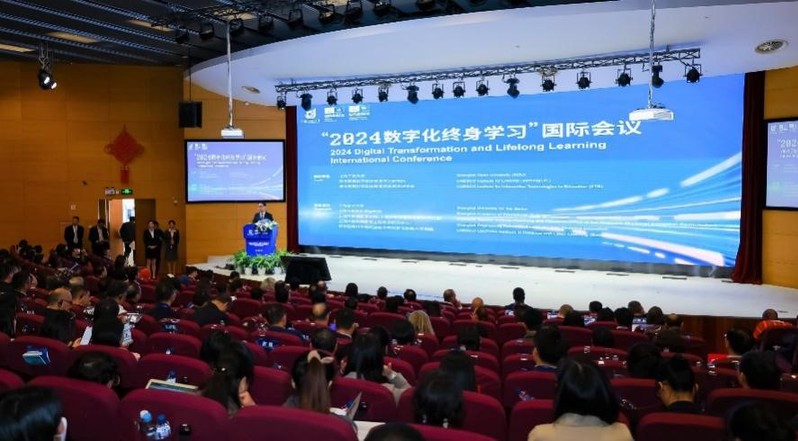
At the conference, Ping Wang, Deputy Secretary-General of the Shanghai Municipal People's Government, delivered an address. He first congratulated the successful holding of the conference and the establishment of the Global Network for Digital Lifelong Learning, believing that the conference is an important continuation and deepening of the World Digital Education Conference. It will further promote digital empowerment for lifelong learning development. He stated that Shanghai will continue to explore new models and paths for lifelong learning in the digital age, focus on high-quality balance, bridge the digital divide, further deepen the construction of a learning city, promote the digital popularization of high-quality educational resources, and look forward to deeper cooperation with UNESCO Institute for Lifelong Learning and the UNESCO Institute for Information Technologies in Education in the future, through the Global Network for Digital Lifelong Learning, they aim to jointly build an interconnected, inclusive, and diverse global digital lifelong learning ecosystem.
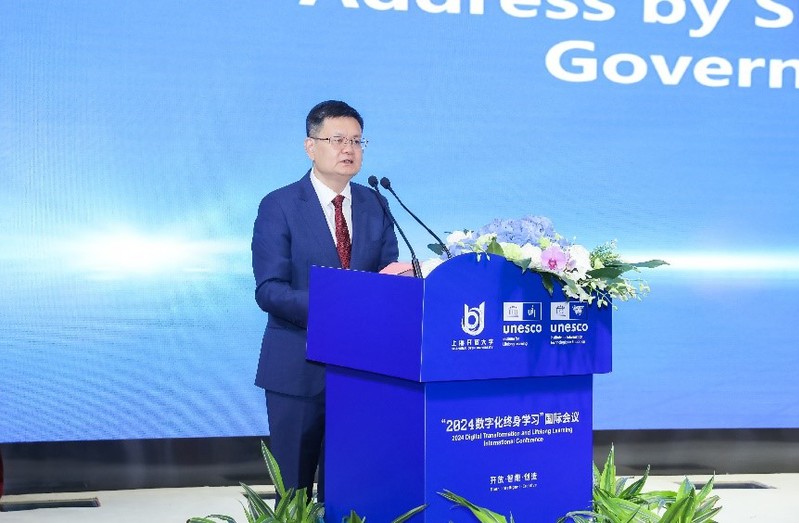
Hui Min, Vice Chair of the University Council of Shanghai Open University, delivered an address on behalf of the host, stating that lifelong learning is an important choice for the world to cope with social and economic changes and promote sustainable development. The digital age has brought new opportunities and challenges for educational development. Shanghai Open University will continue to promote digital lifelong learning from three aspects: building a ubiquitous and accessible digital learning environment, improving citizens' digital literacy, and creating a diverse and collaborative smart education ecosystem.
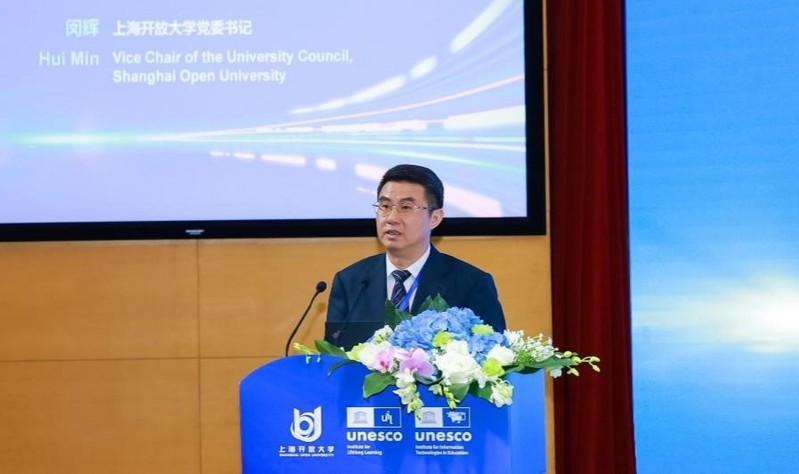
Tao Zhan, Director of the UNESCO Institute for Information Technologies in Education, said in his address that the two major themes of the conference, digital transformation and lifelong learning, are self-evident in the importance of global educational change. The establishment of the Global Network for Digital Lifelong Learning is crucial for promoting the application of artificial intelligence and digital literacy in open education and enhancing the importance of digital technology in lifelong education.
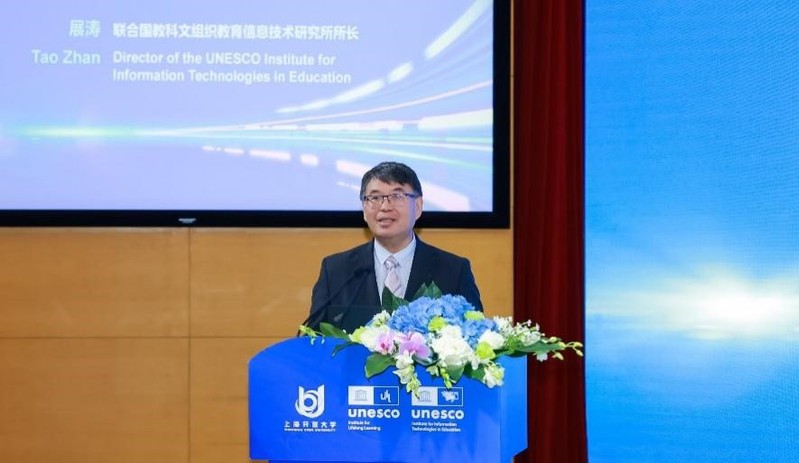
Isabel Kempf, Director of the UNESCO Institute for Lifelong Learning, said in her address that while digital technology provides great potential for educational reform, it also exacerbates the digital divide. She looks forward to fully unleashing the potential of digital technology while focusing on building a truly fair, inclusive, and sustainable lifelong learning system.
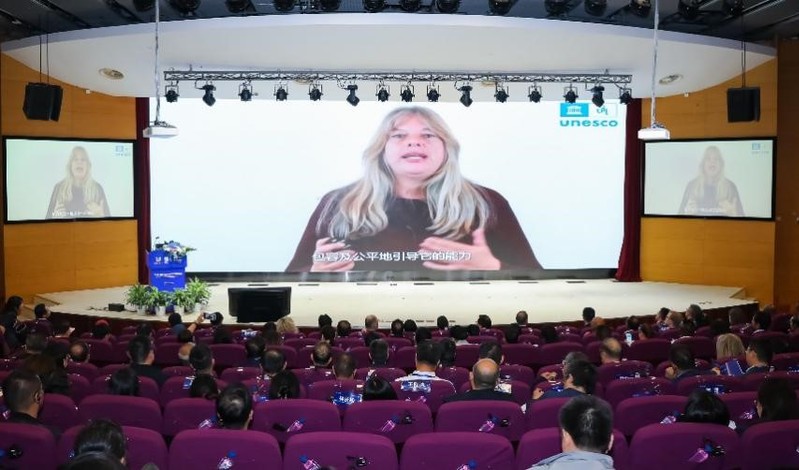
In the keynote speech session, many education experts and scholars discussed how digital technology and artificial intelligence can drive the transformation of lifelong education. Wei Jia, President of the Shanghai Open University, gave a keynote speech titled Open, Intelligent, and Creative—The Era’s Proposition for Digital Transformation and Lifelong Learning. Wei Jia believes that the digital intelligence era requires openness in thinking, concepts, and organizations, achieving an idea and approach from one-way to two-way, and then to all-round openness. He shared the new changes of intelligent technology in promoting high-level educational equity, human-computer integration, and innovation in educational models, and introduced the new viewpoint of AI empowerment of curious, competitive, and strong.
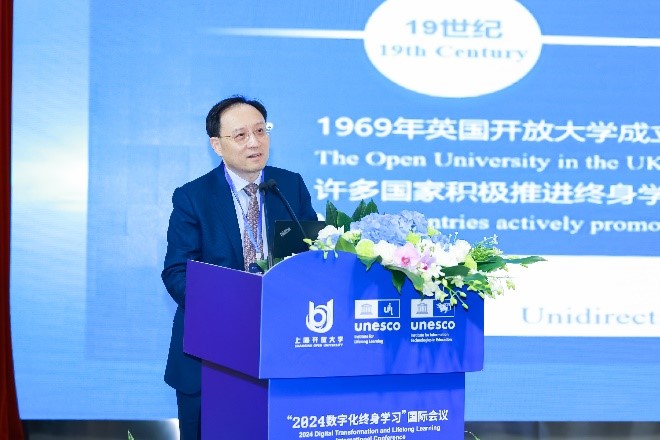
During the conference, the Global Network for Digital Lifelong Learning was officially launched, marking a new stage in global educational cooperation. Eighteen network members from around the world will work closely and share resources to jointly promote the widespread application and innovative development of open education and lifelong learning, contributing to the enhancement of educational equity and inclusiveness worldwide, and striving to narrow the digital divide.
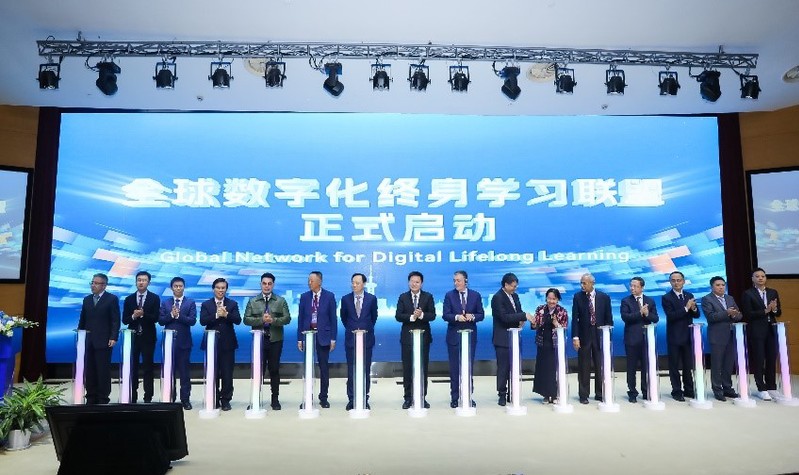
Additionally, Shanghai Open University released Metaverse Scenario for Open Learning and AI-based Teaching Application AI Assistants. The Open Learning Metaverse covers five metaverse teaching scenarios including art teaching, emergency management training, intelligent finance, artificial intelligence courses, and elderly cognitive impairment teaching, constructing experiential, game-based, and training-based teaching methods to provide students with a more immersive environment. The AI Teaching Assistants released at the conference include adult English AI assistants and thesis guidance AI assistants. By deeply integrating with AI agents, they achieve human-machine collaboration, can customize personalized learning paths and content recommendations for each learner, and achieve a more companionable, and guided teaching experience.


